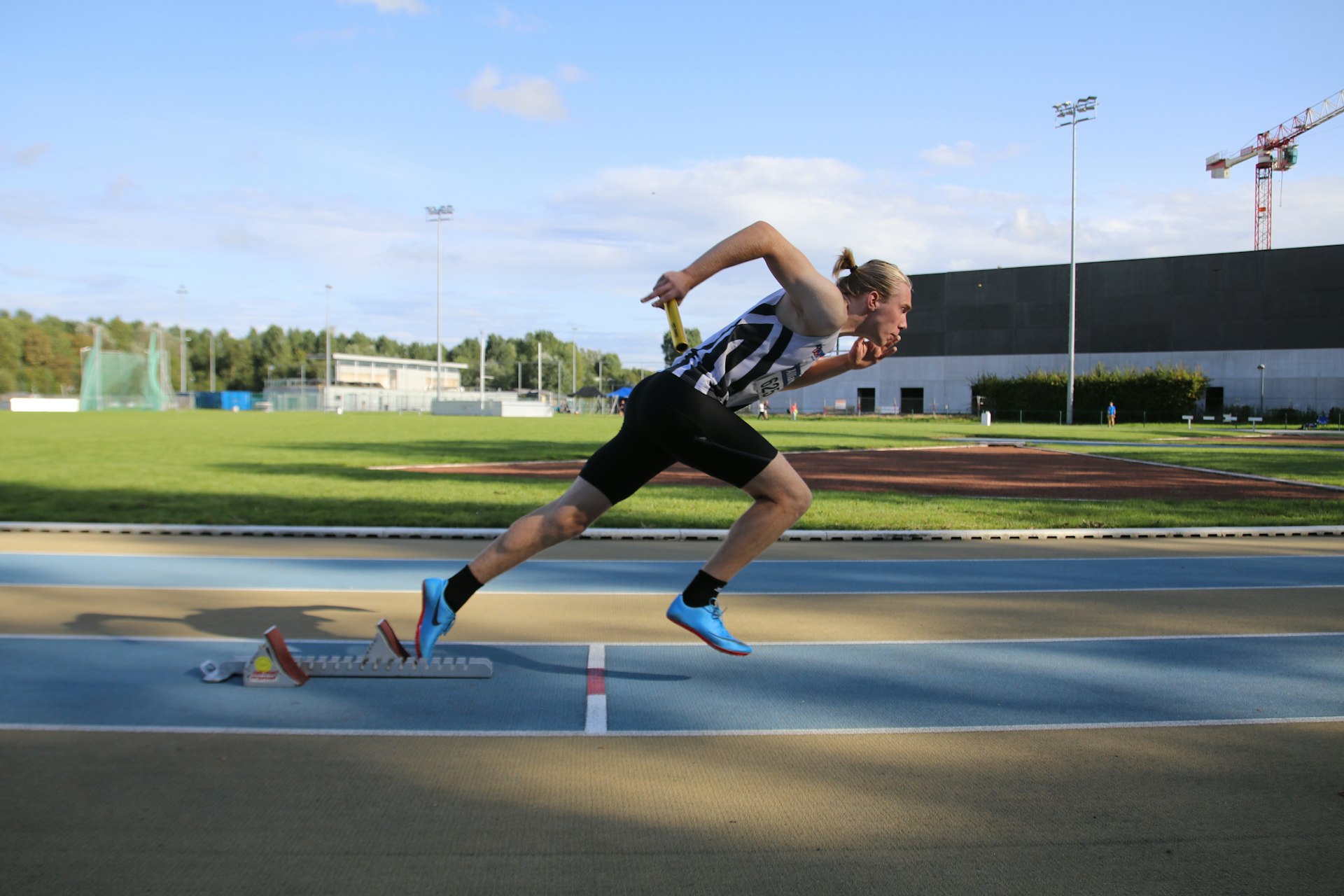Why Role Models Matter: Transforming Youth Through Sports Mentorship

Photo by Anthony McKissic on Unsplash
The Transformative Power of Role Models in Youth Sports
Youth sports represent more than just physical activity; they are a fertile ground for personal growth, discipline, and the development of lifelong values. Central to this experience is the presence of role models-coaches, older athletes, and even professional sports figures-who inspire, guide, and shape the attitudes and behaviors of young participants. Understanding their importance is crucial for families, coaches, and community leaders seeking to maximize the positive impact of youth sports programs.
How Role Models Inspire Motivation and Commitment
One of the core benefits of having a positive role model in youth sports is the boost in motivation and commitment they provide. When young athletes witness someone they admire-whether a coach, teammate, or professional-demonstrating dedication and passion, it ignites a similar drive in them. This modeling effect is well-documented: observing a role model’s effort and resilience makes hard work appear worthwhile and achievable [1] . For example, the relentless training and public advocacy of athletes like the U.S. Women’s National Soccer Team have inspired countless young players to pursue their goals with new energy and confidence.
To cultivate this inspiration at the local level, families and coaches can:
- Introduce young athletes to success stories from their sport.
- Encourage participation in clinics or camps led by experienced athletes.
- Highlight positive behaviors-such as perseverance and teamwork-during practices and games.
These steps help embed motivation as a core part of a young athlete’s experience, making commitment to training and competition more sustainable.
Enhancing Goal Setting and Achievement Through Example
Role models in youth sports play a significant part in fostering effective goal setting and achievement . Research shows that observing others successfully pursue and attain objectives makes young people more likely to set ambitious but realistic goals for themselves [1] [2] . This process extends beyond athletic performance, influencing academic success, social skills, and even future career aspirations.
For practical implementation:
- Encourage athletes to articulate both short- and long-term goals with guidance from mentors.
- Celebrate milestones, no matter how small, to reinforce progress and build self-belief.
- Promote reflection by discussing how positive role models have overcome obstacles to achieve their objectives.
These approaches not only improve athletic performance but also teach valuable life skills that extend far beyond the playing field.
Cultivating Resilience and Coping Skills
Resilience is a quality that enables youth to bounce back from setbacks and continue striving in the face of adversity. Positive role models demonstrate resilience by showing how to handle losses, injuries, and personal hardships. Watching a respected figure overcome challenges reassures young athletes that setbacks are part of growth and not a reason to give up [1] . For example, when well-known athletes like Simone Biles or Michael Phelps speak openly about their struggles and recovery, it sends a powerful message that everyone faces obstacles-and that asking for help is both acceptable and encouraged [3] .
To foster resilience:

Photo by (Augustin-Foto) Jonas Augustin on Unsplash
- Share stories of athletes who have overcome adversity.
- Encourage open discussion about setbacks and coping strategies.
- Model constructive responses to losses and mistakes during practices and games.
This proactive approach nurtures a growth mindset, helping young people learn from failure and persist toward their goals.
Building Character, Sportsmanship, and Social Skills
Beyond athletic ability, role models in youth sports are crucial in teaching character, sportsmanship, and ethical behavior . The way athletes and coaches interact with teammates, opponents, and officials sets a visible standard for young participants. Good role models show respect, humility, and fairness, helping to instill these values in emerging athletes [3] .
To achieve this in practice:
- Highlight and reward displays of sportsmanship during games.
- Discuss the importance of ethical behavior, both in sport and in life.
- Encourage young athletes to volunteer or give back to their communities, following the example of high-profile athletes like LeBron James and JJ Watt, who have used their platforms to support youth initiatives [3] .
By providing daily examples of good character, role models help shape well-rounded individuals who succeed both on and off the field.
The Impact of Coaches as Everyday Role Models
While celebrity athletes attract significant attention, coaches are often the most consistent and influential role models in a young athlete’s life. Coaches serve as mentors, offering guidance, encouragement, and structure. Research indicates that youth who identify a coach as a primary mentor have higher rates of high school completion and post-secondary success, even among those who were not top achievers initially [5] .
For families seeking to maximize the benefits of coaching:
- Engage with coaches and ask about their approach to mentoring and character development.
- Encourage children to seek feedback and support from their coaches during challenging times.
- Support sports organizations that prioritize coach training and holistic youth development.
When selecting a youth sports program, consider those that emphasize mentorship, positive reinforcement, and personal growth alongside competition.
Recognizing Potential Pitfalls and Encouraging Wise Choices
It is important to acknowledge that not all role models in sports demonstrate positive behaviors. Issues such as substance abuse, unethical conduct, or poor sportsmanship among high-profile athletes can negatively influence impressionable youth [4] . Parents and coaches must remain vigilant, encouraging young athletes to critically evaluate the examples they follow and to understand the difference between athletic success and personal character.
Practical steps for families and coaches:
- Discuss real-world examples of both positive and negative behaviors in sports.
- Guide youth in identifying qualities worth emulating, such as work ethic, kindness, and integrity.
- Encourage a focus on local role models, like community coaches and older teammates, who provide daily positive influence.
By fostering critical thinking and self-awareness, adults can help young athletes navigate the challenges of hero worship and make wise choices about whom to emulate.
Accessing Support and Guidance for Youth Sports Mentorship
If you are looking to maximize the positive impact of role models in your child’s sports experience, consider the following actionable steps:
- Seek youth sports programs with a strong emphasis on mentorship and character development. Local parks and recreation departments, YMCAs, and community centers often provide structured programs with trained coaches.
- Request information about coach training and background checks to ensure your child is under positive adult supervision.
- Encourage your child to participate in clinics and events featuring guest athletes who share stories of resilience and positive values.
- For additional guidance, you can consult national organizations such as Positive Coaching Alliance and the Aspen Institute’s Project Play. To find these resources, search for the organizations by name on your preferred search engine or visit their official websites for program details and contact information.
- If you have concerns about negative influences, speak directly with program administrators and coaches to address issues and ensure a supportive environment for your child.
Remember, the most effective sports role models are those who demonstrate consistency, integrity, and a genuine commitment to youth development-qualities that can be found in both celebrated athletes and everyday coaches within your community.
Key Takeaways for Families, Coaches, and Communities
Role models are an essential element in the fabric of youth sports. Their influence extends beyond athletic performance, shaping motivation, resilience, goal achievement, and character. By being intentional about the role models young athletes encounter and providing structured opportunities for positive mentorship, families and organizations can ensure that sports serve as a force for lifelong growth and success.
References
- [1] Colorado Rapids Youth Soccer (2023). The Power of Role Models.
- [2] D. Kim, S. H. Shin (2023). Impact of sports role model attributes on the development of young athletes.
- [3] Arkansas State University (2023). How Sports Programs Can Develop Positive Role Models.
- [4] Money Smart Athlete (2023). The Impact of Sports Role Models on Kids’ Lives.
- [5] Evidence Based Mentoring (2024). The Role of Coaches in Young Lives.
MORE FROM nicoupon.com













